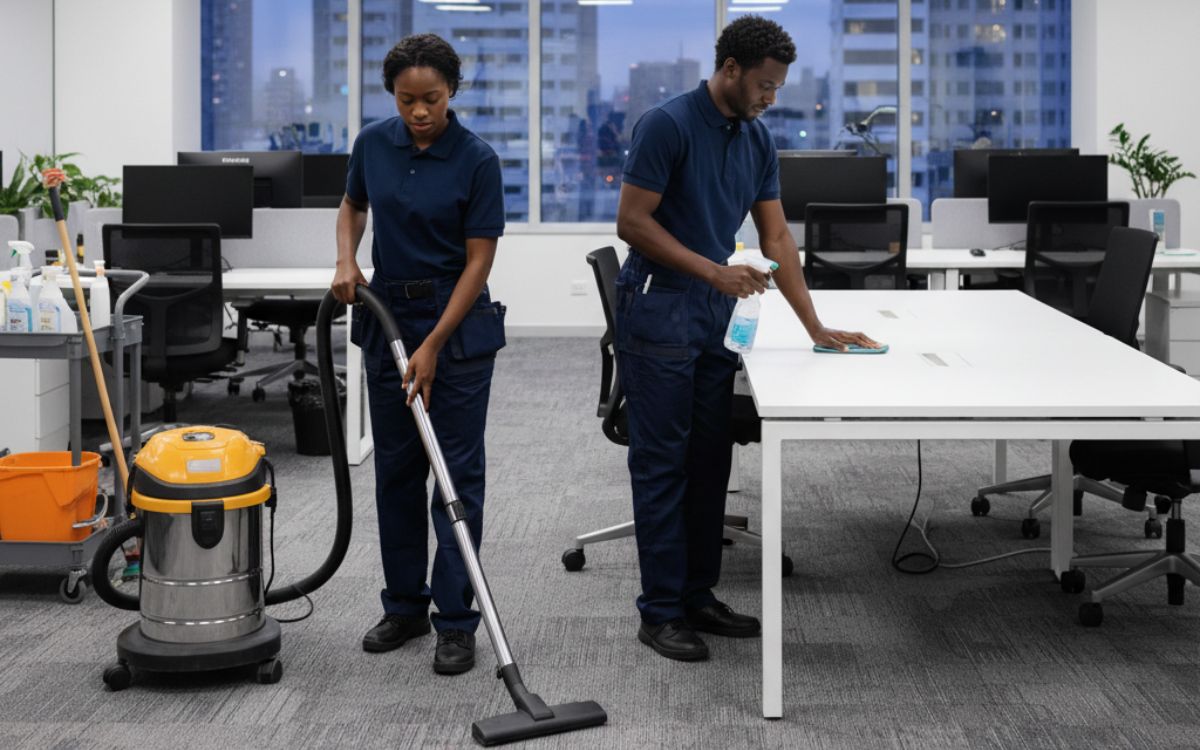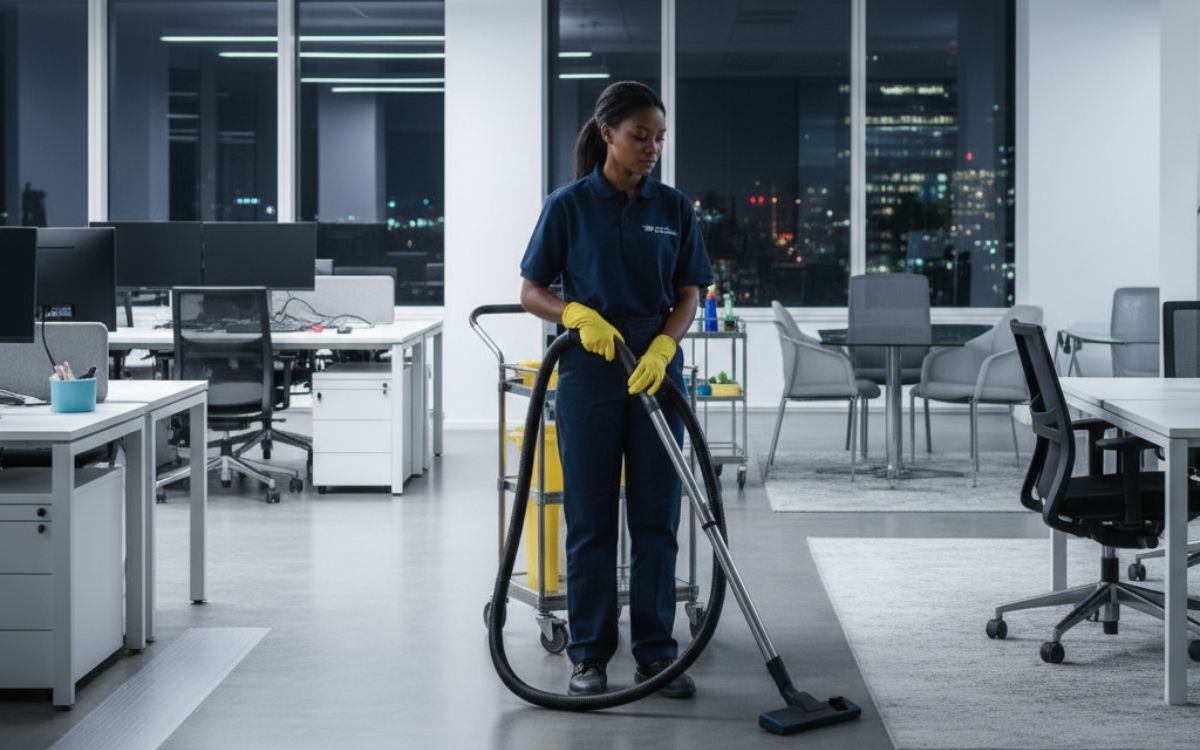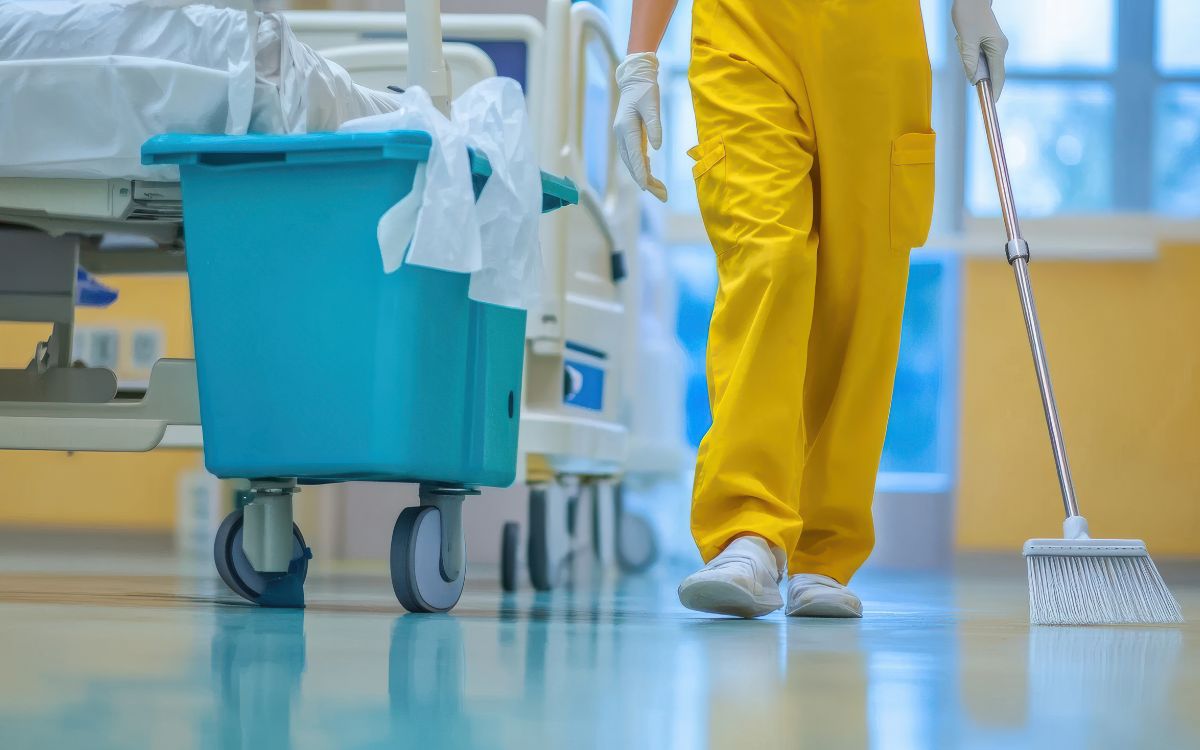Many businesses see cleaning as a simple task. However, an untrained team can lead to unforeseen costs, from damaged property to lost productivity. Investing in training for cleaning staff is key to a professional, safe, and efficient workplace.
This training equips staff with the skills to handle equipment safely, follow proper cleaning procedures, and reduce risks. This translates into a stronger ROI and a more reliable service. Think about this as less of a grudge expense, and more of a valuable asset.
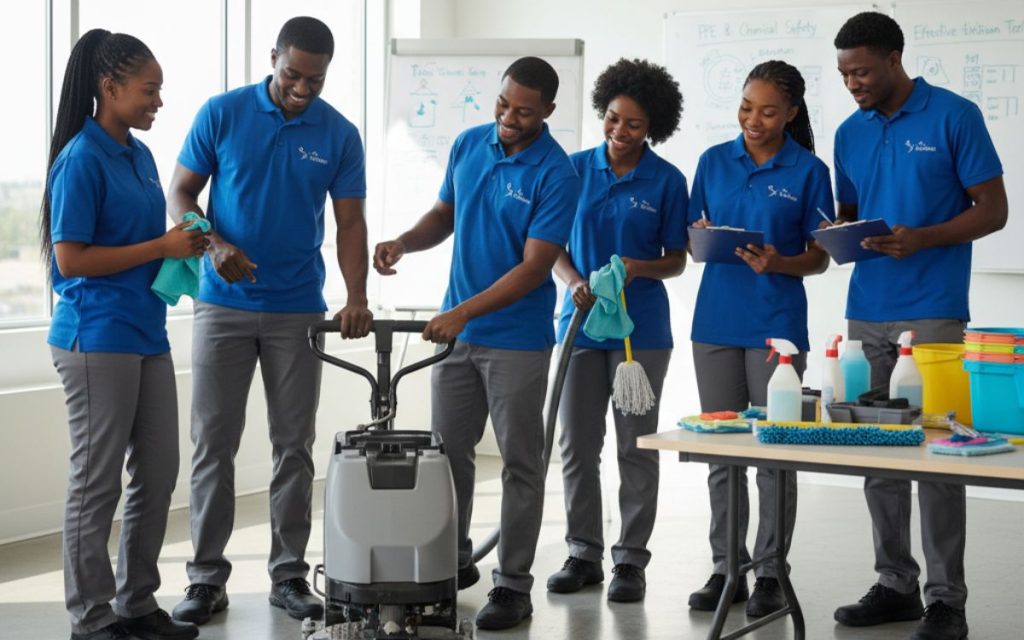
What Cleaning Service Training Typically Includes
A good cleaning training programme ensures staff are prepared for any cleaning task. It covers a wide range of skills including:
Core Cleaning Skills
Training for cleaning staff begins with foundational knowledge. It ensures everyone starts with the same high standards.
- Hygiene and Sanitation: Staff learn to prevent the spread of germs and bacteria. They master techniques for keeping areas clean and healthy. This helps reduce sick days for employees.
- Equipment and Chemical Use: A major part of the training is learning to use tools and chemicals safely and correctly. This includes professional-grade vacuums and other machinery. It also involves understanding industrial-grade chemicals and eco-friendly products.
- Time Management and Organisation: Staff are taught how to plan their work to be more efficient. This helps them complete tasks in a timely manner and keeps staffing costs under control.
- Customer Service: Even though they may be in the background, a cleaner’s professionalism is important. Training teaches staff how to interact with clients politely.
Advanced Cleaning Techniques
Once the basics are covered, training moves to more complex skills for specialised cleaning. These are often required for specific environments and tough jobs.
- Deep Cleaning Procedures: This involves learning detailed and intensive cleaning methods. These are methods used to revitalise every surface and space, removing hidden dirt and grime.
- Specialised Equipment: Staff learn how to use advanced machines such as industrial floor scrubbers, water-fed poles, polishers, and carpet cleaners. They also learn to maintain them properly.
- Green Cleaning Practices: Staff learn how to use bio-degradable products that are safe for people and the planet.
- Managing Cleaning Schedules: This training teaches staff to create and follow a plan. They also learn to adapt schedules for different environments and needs.
Other Important Skills
Beyond the physical act of cleaning, a good workplace training programme covers other critical areas. These skills ensure a high level of professionalism and safety.
- Health and Safety: This training is crucial for reducing workplace accidents and minimising health risks. It includes protocols for handling hazardous materials and using PPE.
- Personal Hygiene: Staff are trained on proper personal hygiene standards. This is a basic but essential part of maintaining a hygienic workplace for everyone.
- Waste Management: Training includes proper disposal and management of waste. Staff learn to separate materials for recycling and follow environmental protocols.
- Customer Interaction: Staff learn how to be professional with clients and handle any questions they may have. This helps create a trusting relationship.
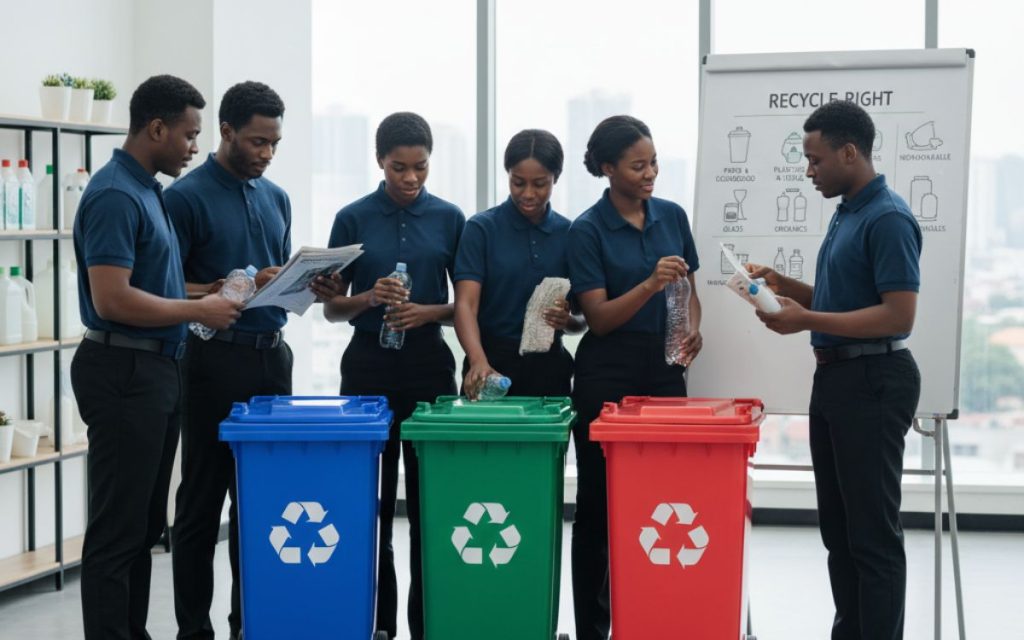
The Benefits of Investing in Training for Cleaning Staff
Investing in your cleaning staff has many advantages. A well-trained team works better and safer. It also helps you build a more reliable service. The four main benefits include:
Increased Productivity and Efficiency
A trained cleaning team works much more efficiently because they know the right cleaning procedures and use equipment properly. They don’t have to waste time guessing which product to use or how to operate a machine. For example, a cleaner trained on an industrial floor polisher can cover a large warehouse floor in half the time of an untrained worker, saving on labour hours.
This leads to a reduction in labour costs and improved operational efficiency. Simply put, you get a better service for a more controlled price, which is a clear win.
Improved Quality of Service
Training ensures a consistently high standard of cleanliness. When staff are skilled, they do the job right the first time, reducing the need for re-cleans or complaints. For instance, staff trained in specialised cleaning techniques for windows can achieve a streak-free, crystal-clear finish that an untrained person cannot.
A pristine workspace leaves a great impression on everyone, from your employees to important visitors. This reflects well on your company’s professionalism and attention to detail.
Enhanced Safety
Proper cleaning safety training is critical for minimising risks. It covers chemical handling training and the correct use of professional-grade equipment. This reduces the risk of accidents and injuries in the workplace.
For example, a trained employee knows to use personal protective equipment (PPE) when handling strong cleaning agents, preventing burns or chemical exposure. This minimises your company’s liability and ensures compliance with OHS regulations. A safe team is a productive team.
Professional Development and Morale
Training gives staff a sense of value. It shows that you care about their skills and growth. This leads to a more motivated and reliable workforce. When staff feel valued, they take pride in their work and are less likely to leave the company. A skilled and stable team reduces the cost and time of staff turnover. This creates a positive work environment and benefits everyone.
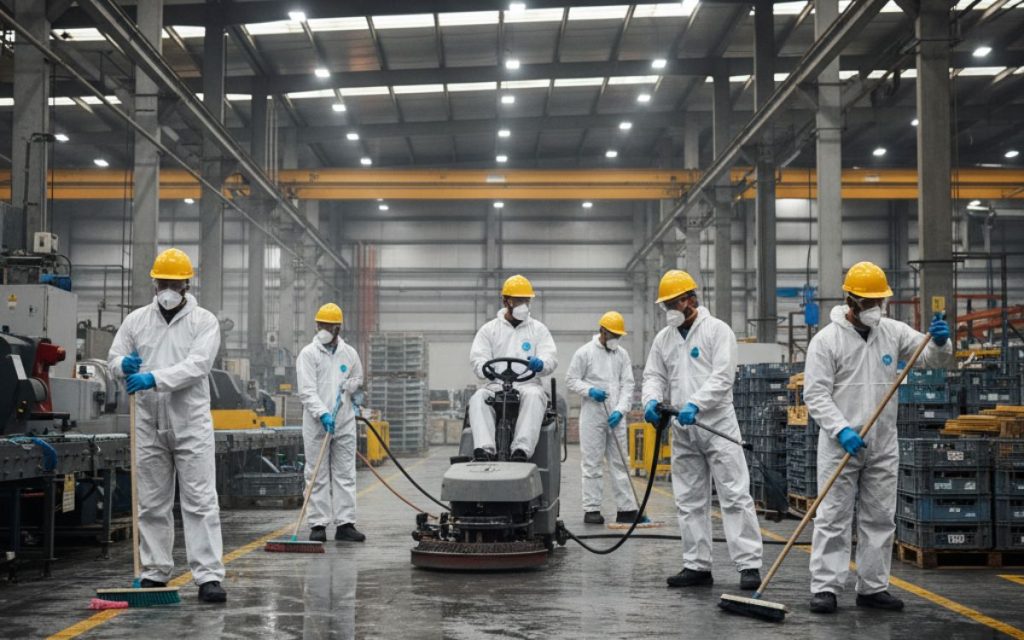
Training Formats: Finding the Right Solution
Different training formats work for different needs. The goal is to find a solution that fits your company’s unique requirements.
- On-site Training: This is a hands-on approach. Trainers come to your location to teach practical skills. This training can be tailored to your specific space and equipment, like industrial floor polishers or high-pressure washers. It’s great for learning how to use your own machines safely and correctly.
- Online Courses: These offer flexibility for learning theoretical knowledge. Staff can complete courses on hygiene standards or chemical handling training from anywhere. This is a cost-effective option for large teams as it saves travel costs.
- Customised Training: The best solution is often a mix of both. A bespoke plan is designed for your specific goals. It combines hands-on practice with theoretical learning to create a complete workplace training programme.
Invest in Your Cleaning Team
Investing in training for cleaning staff is one of the smartest decisions you can make to improve safety, efficiency, and overall operations. A well-trained team is a valuable asset that reduces risks and saves you money in the long run. Professional training turns your cleaning service into a key part of your business success.
Ready to improve your company’s cleaning standards and performance? Get a free quote today.


